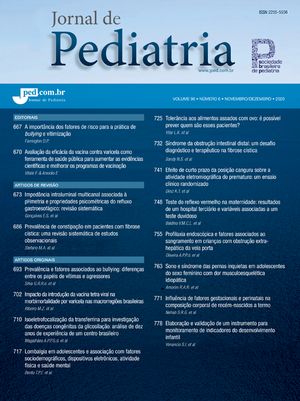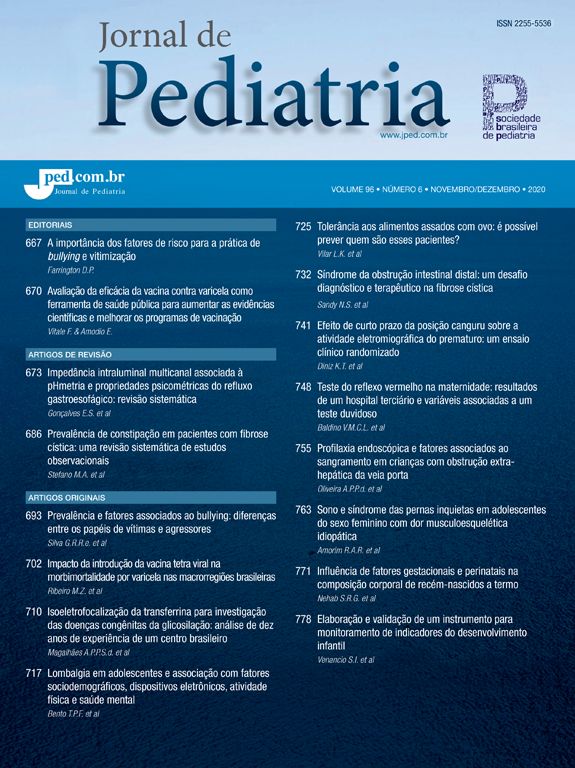
To review the literature on the current situation of neonatal screening worldwide and in Brazil. To define the role of pediatricians in neonatal screening programs.
SourcesScientific articles selected by means of searches run on the medical websites MEDLINE, Cochrane, PubMed (MeSH) and MD Consult, using the keywords newborn screening, neonatal, pediatrics, diagnosis, primary care, ethics and their equivalents in Portuguese, in isolation and in combination, in addition to medical textbooks on genetics and inborn errors of metabolism, published between January 1998 and December 2007, the National Neonatal Screening Program technical standards and routines manual, and Ministry of Health decree 822/2001.
Summary of the findingsPublished data demonstrate a great diversity in the number of diseases included in the neonatal screening programs of different countries. In Brazil, the National Neonatal Screening Program was set up in 2001, to screen for phenylketonuria, congenital hypothyroidism, sickle-cell anemia and cystic fibrosis. Screening for a wider range of conditions using mass spectrometry is currently the subject of disagreement and discussion of financial and ethical issues.
ConclusionsNeonatal screening is one of the most important advances for the prevention of pediatric diseases. Nevertheless, implementation is complex, multidisciplinary and dependent on public health policies and, to date, there is no consensus on which diseases should be included. A large number of scientific and ethical questions need to be discussed in order to better define the screening panels to be implemented. Pediatricians have important roles to play in all stages of neonatal screening programs.
Revisão da literatura para avaliar a situação da triagem neonatal no mundo e no Brasil. Definir o papel do pediatra nos programas de triagem neonatal.
Fontes dos dadosArtigos científicos selecionados por meio de pesquisa feita nos sites de busca médica MEDLINE, Cochrane, PubMed (MeSH) e MD Consult, usando as palavras-chave newborn screening, neonatal, pediatrics, diagnosis, primary care, ethics e seus correspondentes em português de forma isolada e combinada, livros médicos sobre genética e erros inatos do metabolismo, publicados entre janeiro de 1998 e dezembro de 2007, manual de normas técnicas e rotinas do Programa Nacional de Triagem Neonatal, portaria 822/2001, do Ministério da Saúde.
Síntese dos dadosOs dados da literatura mostram grande diversidade no número de doenças incluídas na triagem neonatal em cada país. No Brasil, foi criado o Programa Nacional de Triagem Neonatal em 2001, determinando a realização da triagem para fenilcetonúria, hipotireoidismo congênito, doença falciforme e fibrose cística. A triagem ampliada por espectrometria de massa é, hoje, motivo de controvérsias e discussões sobre questões financeiras e éticas.
ConclusõesA triagem neonatal representa um dos principais avanços para a prevenção de doenças na pediatria. Entretanto, sua implantação é complexa, multidisciplinar, depende de políticas públicas de saúde e não há, até o momento, consenso sobre quais doenças devam ser incluídas. Diversas questões científicas e éticas precisam ser discutidas para melhor definição dos painéis a serem seguidos. O pediatra tem papel importante em todas as etapas dos programas de triagem neonatal.









